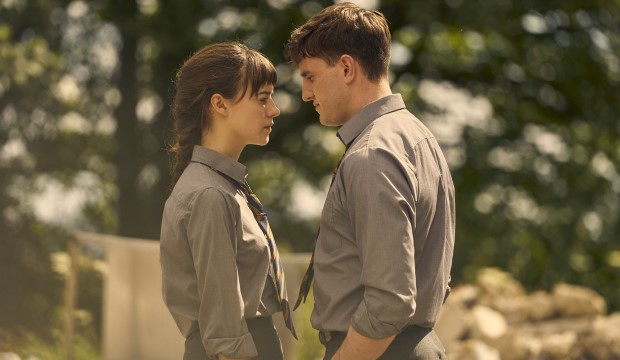
The new 12-part BBC/Hulu TV series – partly adapted by Sally Rooney from her second novel – remains faithful to the warm, delicate words of the book, while engendering a unique and sensitive televisual style of its own.

Photo: BBC
Reading
the book brings many benefits when watching the series, but it’s not required to
immerse yourself in the story. Although many of the emotional beats in the four
episodes released to critics are more impactful with prior knowledge, the writing
and direction and central performances still spark like a grey house filled
with pixie dust.
Like Rooney’s prose, the series finds the subtle magic in the mundane, never feeling the need to rush or overdramatise. A perfect fit, then, for Irish director Lenny Abrahamson, whose projects (Frank, Room, The Little Stranger) like to creep and crawl instead of fly and shout. The only melodrama is within the feelings of the reader, and it’s a similar case for the viewer. Here's why we loved it.

Photo: BBC
The
story
Normal
People follows two
in-love teenagers in County Sligo in Ireland, crossing uncomfortably into
adulthood. Their established identities shift into contrary directions as they
leave school and attend Trinity College Dublin (which both Rooney and Abrahamson
attended).
Marianne (Daisy Edgar-Jones) is an introverted but outspoken loner: no friends, bullied for being ‘ugly’, ‘flat-chested’, and a ‘psycho’. Connell (Paul Mescal) is her opposite: popular, sporty, never bullied but occasionally mocked about his shyness.
And yet, despite their differences, Connell and Marianne fall in love. His mother Lorraine (Sarah Greene) cleans Marianne’s family home, so the couple are together a lot. But there’s a catch: Connell has a social status to uphold, so their relationship can’t be made public – such are the traumatising politics of secondary school.
Once they attend university, it's like they switch personalities: Marianne gets popular; Connell struggles to socialise.

Photo: BBC
The sex
Culture is awash with hard, graphic depictions of sex and there are plenty of justifications. (Fiction would be much staler without it.) But Normal People makes a refreshing diversion: showing the intimacy, the sensuality and the funny awkwardness that sex can propitiate. The scenes aren’t especially sexy, despite being sexual – grounding them in reality.
In a recent interview with RadioTimes.com, Edgar-Jones said she was ‘proud’ of the sex scenes: ‘sometimes it’s awkward and a bit clunky and a bit ugly, which is wonderful because that’s what it is’. It’s precisely the clunk and ugliness that makes these scenes so beautiful to watch. With a surfeit of gratuitous and – much worse – artificially directed sex on screen, Normal People feels real enough to bring tears to your eyes.

Photo: BBC
The love and tenderness
Last
year exploded with refreshingly accurate, hilariously crude and sexually
exciting representations of teenage life in the millennial and Z generations.
Sex Education unravelled with exaggerated fun and comedy, like an enlightened version of a John Hughes movie; Euphoria pursued darker directions, diving into the drugs, the dick pics, the rape, and the abuse endured by the lamentably titled ‘snowflake generation’. Both shows blew up screens around the world with their stylish, extroverted zeal. Normal People attends the same party as these seminal shows, but reads quietly in a noiseless room nearby.

Photo: BBC
Normal
People is gentler than
Euphoria or Sex Education. The visual style is soft and natural; sweet
sunlight pours through barely lit houses. This tender naturalism spills into
Marianne and Connell’s lone interactions with each other; the school
class-system melts into meaninglessness.
Rooney recently stated that these were her favourite scenes to write, so it’s no coincidence that they’re the most absorbing, the most heartfelt. The connection between Mescal and Edgar-Jones is more than chemistry: it's like they're magnetised, eternally fused together despite their characters’ lack of communication skills.
More than a year has passed since the Hot Priest sermonised that love ‘is all any of us want, and it’s hell when we get there’ in the Fleabag season 2 finale. Love is hell, but it’s also soft and fragile. That’s what makes Normal People so moving, so relatable.
Normal People is available on BBC Three / iPlayer from 6am on Sunday 26 April. It also airs on BBC One at 9pm on Monday 27 April, continuing weekly.
To show our love for Normal People, Culture Whisper is reviewing episodes week by week to align with the BBC One broadcasts.
| What | Why Normal People is beautiful television |
| When |
26 Apr 20 – 26 Apr 21, ON BBC THREE/iPLAYER 27 Apr 20 – 01 Jun 20, ON BBC ONE |
| Price | £n/a |
| Website |



